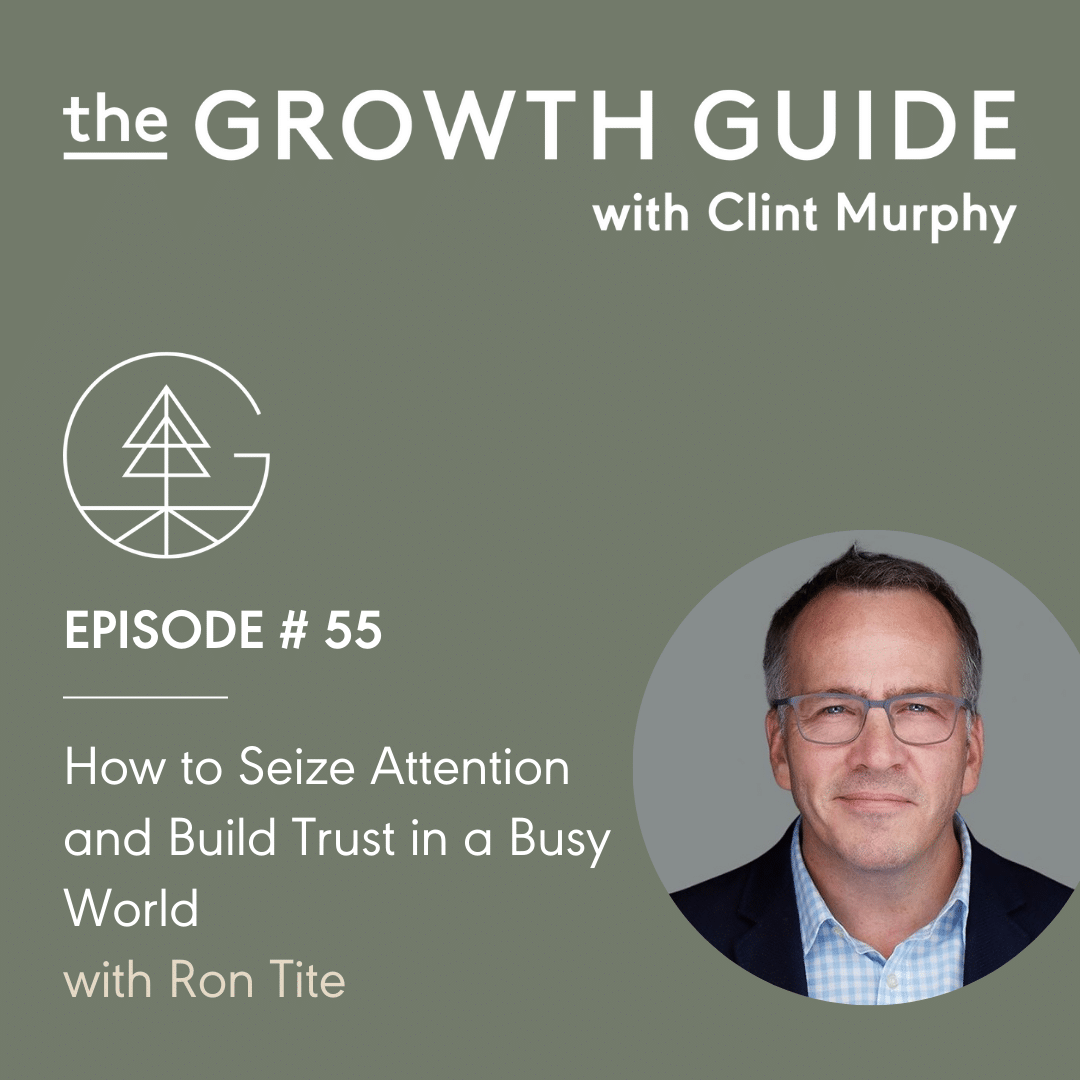About the Episode
People in today’s world are subjected to an onslaught of nonstop material, unmet promises, unending product extensions, and the added strain of reading articles with titles like “The 7 Things That Successful People Do Every Day.” As a result, they are unsure who to trust or where to go for answers. As a company, the question now is, how can you win their time and earn their trust? In today’s episode of the Pursuit of Learning podcast, Ron Tite joins us to discuss how to capture attention and develop customers’ confidence in a society full of distractions.
Ron, a bestselling author, speaker, producer, and entrepreneur, has always blurred the barriers between art and business. He has been a creative director and award-winning advertising copywriter for some of the world’s most prestigious companies, including Air France, Evian, Fidelity, Hershey, Johnson & Johnson, Kraft, Intel, and Microsoft. Also, he is the founder of Church+State, the host and executive producer of the popular podcast “The Coup.” Moreover, Ron is in high demand as a speaker across the globe. He speaks to top corporations about leadership, disruption, branding, and innovation. In 2016, HarperCollins published Ron’s first book, Everyone’s An Artist – Or At Least They Should Be (co-written by Scott Kavanagh and Christopher Novais). In today’s conversation, we dive deep into his most recent book, Think Do Say: How to Seize Attention and Build Trust in a Busy Busy World. This book is a how-to manual for getting the most out of yourself and your company, full of practical advice and indispensable humor.
Since we currently reside in a post-truth culture, we cannot determine in whom or to what we should put our faith. In our conversation today, Ron discusses the post-truth era and the impact it has had on the customers that we are putting a lot of effort into connecting with. Moreover, Ron discusses the concept of brand belief and further elaborates on ways of improving it. In addition to this, he talks about the ways in which we can enhance the level of personalization of the products or services that we sell or offer, as well as the ways in which we can proactively build solutions for our customers. Finally, as we end our conversation, Ron clarifies the significance of attracting people who share your goals and values and enabling those people to be flawed. Also, he provides a further explanation regarding the implications of this for organizations.
